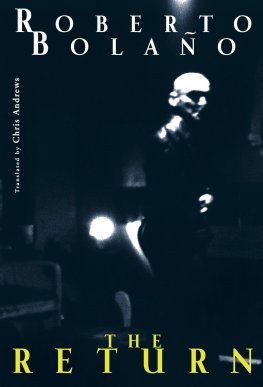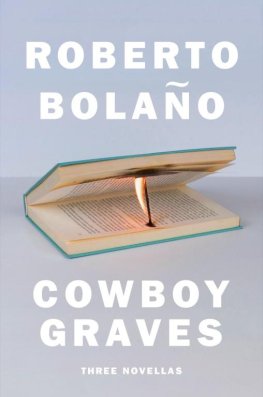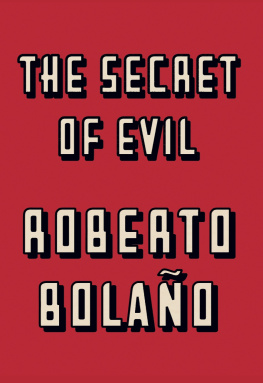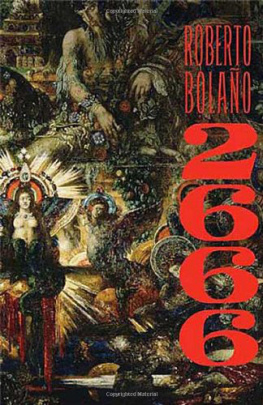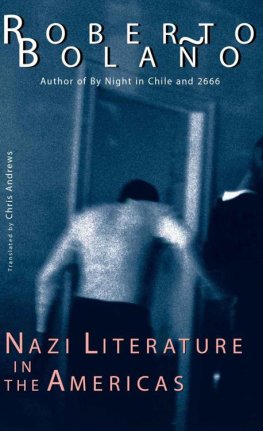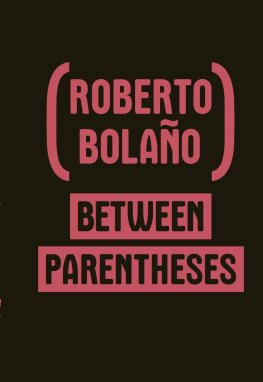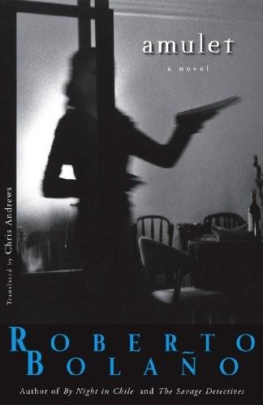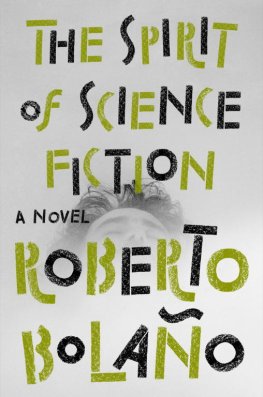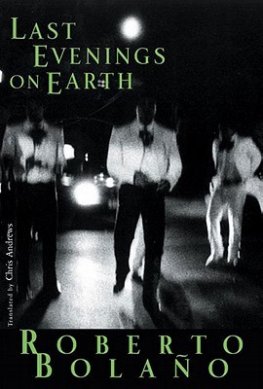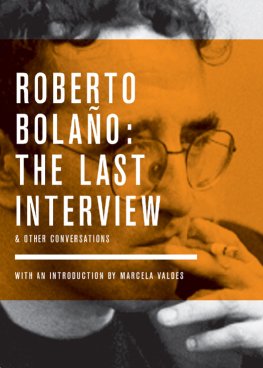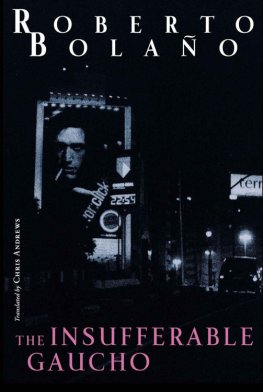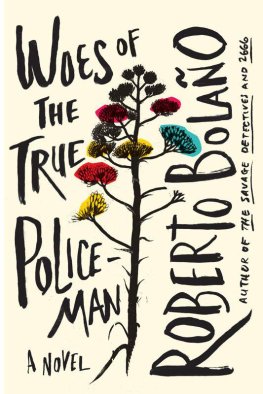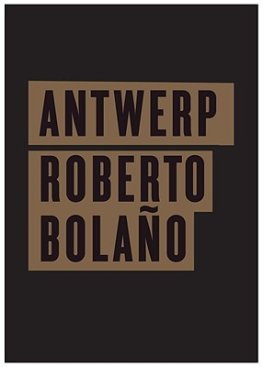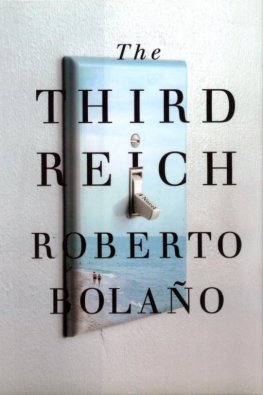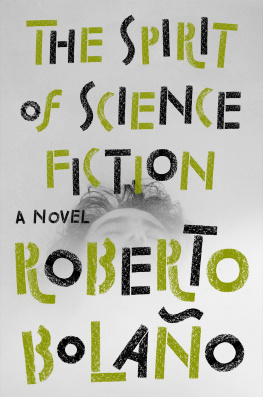I met him in a bar on Calle Tallers, in Barcelona, it must be about five years ago now. When he found out I was Chilean, he came over to say hello; he too had been born in that faraway place.
He was more or less the same age as me, thirty-odd, and he drank quite a bit, though I never saw him drunk. His name was Rogelio Estrada. He was thin, shortish, and dark. His smile seemed to be permanently poised between wonder and mischief, but after a while I discovered that he was far more innocent than he made out. One night I went to the bar with a group of Catalan friends. We got talking about books. Rogelio came over to our table and said that the greatest writer of the century was, without a doubt, Mikhail Bulgakov. One of the Catalans had read The Master and Margarita and A Theatrical Novel, but Rogelio mentioned other works by the distinguished novelist, more than ten of them, if I remember correctly, and he gave their titles in Russian. My friends and I thought he was joking, and soon the talk moved on. One night he invited me back to his place and I went, I dont know why. He lived in a street nearby, a few yards from a very decrepit movie theater known to the local kids as the Ghost Cinema. The apartment was old and full of furniture that wasnt his. We sat down in the living room, Rogelio put on a record some awful, emphatic music with an unrelenting crescendo and then he filled two glasses with vodka. On a shelf, presiding over the room, was a silver-framed photo of a girl. The rest of the decor was nothing special: postcards from various European countries and some very old shabby-looking soccer pennants: Colo-Colo, University of Chile and Santiago Morning. Pretty, isnt she? said Rogelio, pointing at the girl in the silver frame. Yes, very pretty, I replied. Then we sat down again and drank for a while in silence. When Rogelio eventually spoke, the bottle was almost empty. First you have to empty the bottle, he said, then your soul. I shrugged. Though, of course, I dont believe in the soul, he added. It all comes down to time, though, doesnt it? Do you have time to listen to my story? Depends on the story, I said, but I think so. It wont take very long, said Rogelio. Then he stood up, took the silver-framed photo, sat down in front of me cradling it in his left arm while holding the glass of vodka in his right hand, and began:
My childhood was happy; it had nothing to do with the way my life turned out later. Things started going wrong when I was a teenager. I was living in Santiago with my family and according to my father I was well on the way to becoming a juvenile delinquent. My father, in case you dont know (and I cant see why you would), was Jos Estrada Martnez, aka Chubby Estrada, one of the big wheels in the Chilean Communist Party. And we were a proudly proletarian family, fighting the good fight, upstanding and righteous. At the age of thirteen I stole a bicycle. You can imagine, I dont need to spell it out. I was caught two days later and got one hell of a thrashing. At fourteen I started smoking dope some of my friends in the neighborhood used to grow it in the foothills of the Andes. At the time my father had a senior position in Allendes government, and his biggest fear, poor old dad, was that the right-wing press would reveal the misdemeanors of his eldest son. At fifteen I stole a car. I wasnt caught (though now I know that with a bit more time, the cops would have found me) because a few days later the coup happened and my whole family took refuge in the Soviet Embassy. I dont need to tell you what the days I spent in there were like. It was awful. I slept in the corridor and kept trying to hit on the daughter of one of my fathers comrades, but all they did, that bunch, was sing The International or No pasarn. You get the picture, it was dismal, like party time at the Bible Hall.
We arrived in Moscow at the beginning of 1974. Personally, to be honest, I was glad to be going: a new city, blonde blue-eyed Russian girls, the plane trip, Europe, a new culture. The reality turned out quite differently. Moscow was like Santiago, but quieter, bigger and brutally cold in winter. At first they put me in a school where it was Spanish half the time, Russian the other half. Two years later I was at a regular school, speaking okay Russian, and bored out of my wits. I guess some strings were pulled to get me into the University, because I really didnt study much. I enrolled in medicine, but dropped out after a semester; it wasnt for me. Still, I have good memories of my time there: its where I made my first friend, I mean the first friend who wasnt an exiled Chilean like me. His name was Jimmy Fodeba and he came from the Central African Republic, which as the name suggests, is in the middle of Africa. Jimmys father was a communist, like mine, and like my father, hed been forced into exile. Jimmy was pretty smart, but underneath he was just like me. I mean, he liked to stay up late, he liked to drink and smoke the occasional joint, and he liked women. Before long we were joined at the hip. The best friend Ive ever had, except for the gang back in Santiago, the guys who stayed Ill probably never see them again, but who knows? Anyway, what happened was that Jimmy and I combined our forces, and our desires, and, while we were at it, our needs as well, and from then on, instead of being two separate exiles, feeling lost and lonely, we were a pair of wolves roaming the streets of Moscow, and whenever one of us was scared, the other one dared, and so, little by little (because sometimes Jimmy had to study, he was a good student, unlike me), we started to get a general idea of the city where both of us would probably be living for a fair while. I wont go on about our youthful adventures, all Ill say is that after a year we knew where to find a bit of weed, which may not seem like much of a feat now, in Barcelona, but in Moscow, back in those days, it was truly heroic. By then Id tried studying Latin American literature, Russian literature, radio broadcasting, food science, just about everything really, and whether it was because I got bored, or didnt pay attention in class, or just didnt turn up, which is basically what happened most of the time, I failed everything, and eventually my father threatened to send me to work in a factory in Siberia, poor old guy, thats the way he was.
And that was how I came to enroll in the School of Physical Education, which some optimistic Russians used to call the Advanced School of Physical Education, and this time I managed to keep it together until I got my diploma. Thats right, my friend, youre looking at a qualified gymnastics instructor. Not a good one, of course, especially not compared with some of the Russians, but qualified all the same. When I handed my father the diploma, the old man was moved to tears. Id say thats when my adolescence came to an end.
At the time I used to call myself Roger Strada. I was always getting into trouble; my friends werent what youd call good, upstanding citizens and I was thoroughly bad. It was like I was full of rage and didnt know how to get it out of my system. I worked as a trainers assistant for a man of dubious and disconcerting moral character (it was a true meeting of minds); he specialized in recruiting new athletes from secondary schools, and I spent most of my time at parties, making deals and doing shady business to supplement my salary. My boss was called Pultakov. He was divorced and lived in a tiny apartment in Leliushenko Street, near Rogachev Square. As I said, I was a bad boy and Jimmy Fodeba was bad too, and anyone who knew us well knew that we were bad (I think I chose to call myself Roger, at least for a start, because it went with Jimmy, and because I secretly thought of myself as a kind of Italian-American gangster), but Pultakov was

